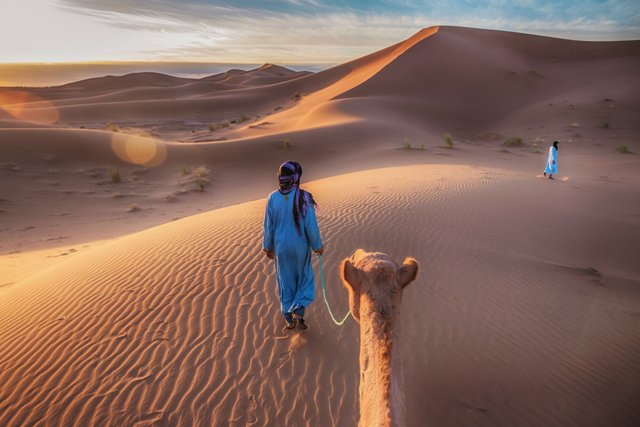Sahara Desert
The Sahara Desert is the largest hot desert in the world, covering approximately 9.2 million square kilometers (3.6 million square miles) across North Africa. It spans several countries, including Algeria, Chad, Egypt, Libya, Mali, Mauritania, Morocco, Niger, Western Sahara, Sudan, and Tunisia. The desert features diverse landscapes, from vast sand dunes and rocky plateaus to mountain ranges and oasis depressions.
Key Facts About the Sahara Desert:
Climate: The Sahara is known for its extreme temperatures, with scorching hot days and cold nights. Rainfall is extremely scarce, often resulting in prolonged droughts.
Flora and Fauna: Despite harsh conditions, the Sahara is home to various plants and animals adapted to arid environments. Vegetation includes drought-resistant shrubs and grasses, while wildlife includes species like the fennec fox, dromedary camels, and various reptiles.
Human Inhabitance: Historically, the Sahara has been inhabited by nomadic tribes, such as the Tuareg and Berber people, who have adapted to the challenging environment. Ancient trade routes, including those for gold and salt, traversed the desert.
Geology: The Sahara's geology features ergs (sand seas), regs (gravel plains), hamadas (rocky plateaus), and mountains. The Ahaggar and Tibesti ranges are among its notable highlands.
Historical Significance: The Sahara has rich archaeological and historical significance, with ancient rock art, remnants of prehistoric lakes, and historic trade routes.
If you have any specific questions or need more detailed information about the Sahara Desert, feel free to ask!

Congratulations, your post has been upvoted by @upex with a 1.18% upvote. We invite you to continue producing quality content and join our Discord community here. Visit https://botsteem.com to utilize usefull and productive automations #bottosteem #upex